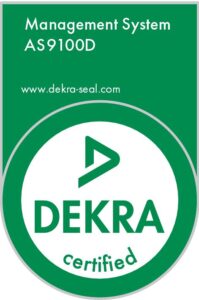Specifically engineered to withstand loosening, lock nuts are indispensable in providing structural integrity. Aerospace, oil and gas, and heavy machinery industries all count on them to avoid failure catastrophes. Whether a lock nut washer holding together an offshore oil platform or nylon insert lock nuts joining an engine together on an airplane, they deliver unparalleled stability.
Why Standard Nuts Fail in High Stress Applications
A standard hex nut or square nut will suffice for use in most applications. However, they will become loose over a period when exposed to vibration, thermal expansion or cyclic stresses.
Envision a wind turbine running at full speed. Continual motion creates forces that rattle every nut and bolt in the system. Without a secure lock nut, a turbine’s structural integrity might be jeopardized, making expensive repairs a necessity—or worse, catastrophic failure.
Lock nuts are a solution for those industries in which failure isn’t an option. They hold fasteners securely even against severe stress, making them a necessity in aerospace, energy, and heavy manufacturing.
Lock Nuts Present Loosening
Unlike the conventional acorn nuts or cap nuts, lock nuts have special mechanisms, which inhibit loosening by:
1. Friction-Based Resistance
They produce some additional friction inside the threading, thereby becoming friction reliant. Some examples include nylon nuts that consist of a built-in nylon ring that grasps the threaded bolt inserts, inhibiting motion even with vibration.
2. Mechanical Locking
Deformed threads or locking tabs physically prevent movement in some flange nuts and lock wheel nuts. Repeated use and reuse in applications with high loads such as rail transport and aeronautical engine applications are typical of these.
3. Chemical Locking
Though not considered a component of the lock nut per se, some markets use thread-locking substances as a way to increase grip. Mechanical methods are more dependable, as they will not degrade over time.
Types of Lock Nuts and Their Applications
One-size-fits-all doesn’t exist when it comes to lock nuts. Industries call for varied locking mechanisms, materials, and coatings based on the environmental conditions.
1. Nylon Inserts
These are some of the most popular lock nuts. Nylon inserts deform over the threaded bolt inserts, providing a stronghold that resists loosening. They are used extensively in automotive manufacturing, construction, and aerospace industries.
Nylon insert nuts are best suited for light and medium use with moderate vibrations in automotive, rail, and aerospace industries.
2. Flange Nut
With a wide base flange, they spread pressure more evenly, which minimizes surface damage when they hold things together. They can be found on heavy equipment and power plants.
These components are best suited for applications with even load distribution in heavy equipment and construction.
3. Lock Wheels
These lock nuts are used in automotive and aerospace designs as a security measure against unauthorized wheel and other rotary component removal.
Lock wheel nuts are ideal for theft prevention and unintended loosening in motor vehicle and aerospace industries.
4. Stainless Steel Nuts & Bolts with Threads
Many lock nuts incorporate slightly deformed threads to provide resistance against loosening. Constructed using stainless steel, they are resistant to corrosion and hold fast in extreme heat. They are best suited for oil and gas, power generation and chemical processing industries.
Structural Integrity
When failure is not an option, lock nuts give the added security that nuts and bolts lack. Their resistance against loosening guarantees that buildings stand firm and stable, even in extreme conditions.
Aerospace and Defense
Aircraft engines run with extreme heat, pressure, and vibration. A loose lock nut can cause mechanical failure. The aerospace industry bolts and nut suppliers have to comply with stringent standards for safety.
Energy and Power Generation
Windmills, atomic power stations, and power generators need assorted nuts and bolts that must be strong enough to handle constant stress. Lock nuts have a very important job in preventing structural collapse in such dangerous environments.
Heavy Equipment and Construction
Excavators, cranes, and other machinery depend on lock nuts to provide stability. Without them, equipment failure and constant maintenance would be costly and reduce downtime.
B&G Manufacturing is the industry leader for industrial precision parts.
For applications that call for absolute dependability, B&G Manufacturing furnishes top-grade lock nuts specifically designed for the most demanding applications. With decades of expertise in fastener manufacturing, B&G delivers:
- Precisely engineered components: produced according to industry-specific
- Advanced materials: from stainless steel nuts & bolts to heat-resistant alloys
- Custom solutions: if standard lock nuts are not sufficient, B&G creates custom alternatives
- Quality assurance: each lock nut is tested stringently for performance in harsh environments
For businesses working in aerospace, energy, or heavy machinery, a reliable collaboration with tried-and-tested bolts and nut suppliers such as B&G provides long-term reliability and safety.
Conclusion
These precision components provide structural integrity in high pressure, high vibration applications. While normal hexagons can become loosened, lock nuts hold fast against loosening, keeping critical structures uncompromised. B&G Manufacturing is the leading bolts and nut supplier—we have mastered manufacturing processes that lead to high-quality thread bolt inserts. Contact us to get started.


 Hatfield
Hatfield

